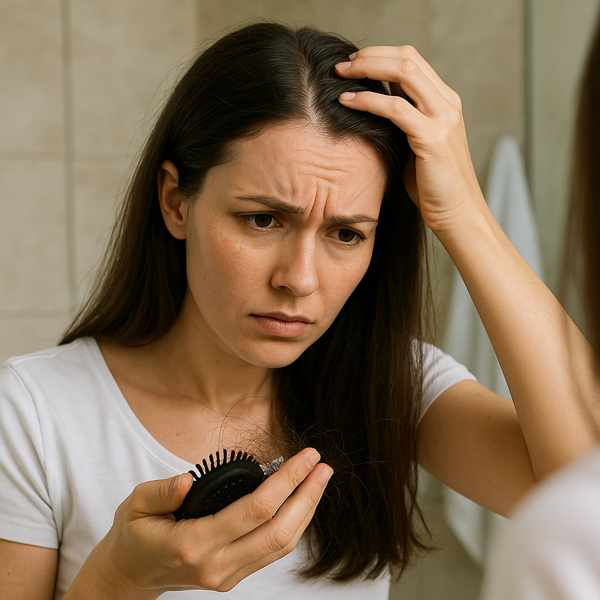
So what’s the connection between weight loss and hair loss, and how can you manage both successfully?
Understanding why this happens and how to protect your hair can help you reach your goals without compromising your confidence.
What Causes Hair Loss After Losing Weight?
Hair loss during weight loss is usually a result of physical stress or nutritional deficiencies.
Common causes include:
- Lack of protein, iron, or vitamins
- Body enters stress mode
- Hormonal imbalances
- Rapid weight loss
What Type of Hair Loss Is It?
Most hair loss related to weight loss is called telogen effluvium.
Key facts:
- Usually occurs 2–3 months after weight loss begins
- Hair falls out evenly across the scalp
- Hair usually grows back with time
Eat for Hair, Not Just Fat Loss
If you're trying to lose weight, be sure not to miss these nutrients:
- Protein
- Iron
- Vital for cell renewal and keratin production
- Zinc
- Vitamin D
Skipping meals or using crash diets can easily lead to deficiencies that trigger hair loss.
Yes — With the Right Strategy
You don’t have to choose between losing weight and keeping your hair.
Tips include:
- Lose weight gradually
- Focus on whole, balanced meals
- Especially during calorie restriction
- Both affect hormones and hair health
- Hair needs water, too
How to Manage Hair Loss During Your Journey
If you notice excessive shedding:
- It’s likely temporary
- Check for deficiencies or thyroid issues
- Replenish what’s missing
- Try gentle hair care
- Be patient
When to See a Professional
If hair loss continues beyond 6 months or worsens significantly, it's a good idea to consult a healthcare provider.
- A common cause of both weight and hair changes
- Can trigger more permanent forms of hair loss
- Severe nutritional deficiencies
Conclusion
By understanding what’s happening hair loss weight loss inside your body, you can take steps to protect your health — and your hair.
Prioritize nourishment, patience, and consistency, and your body will thank you — from head to toe.